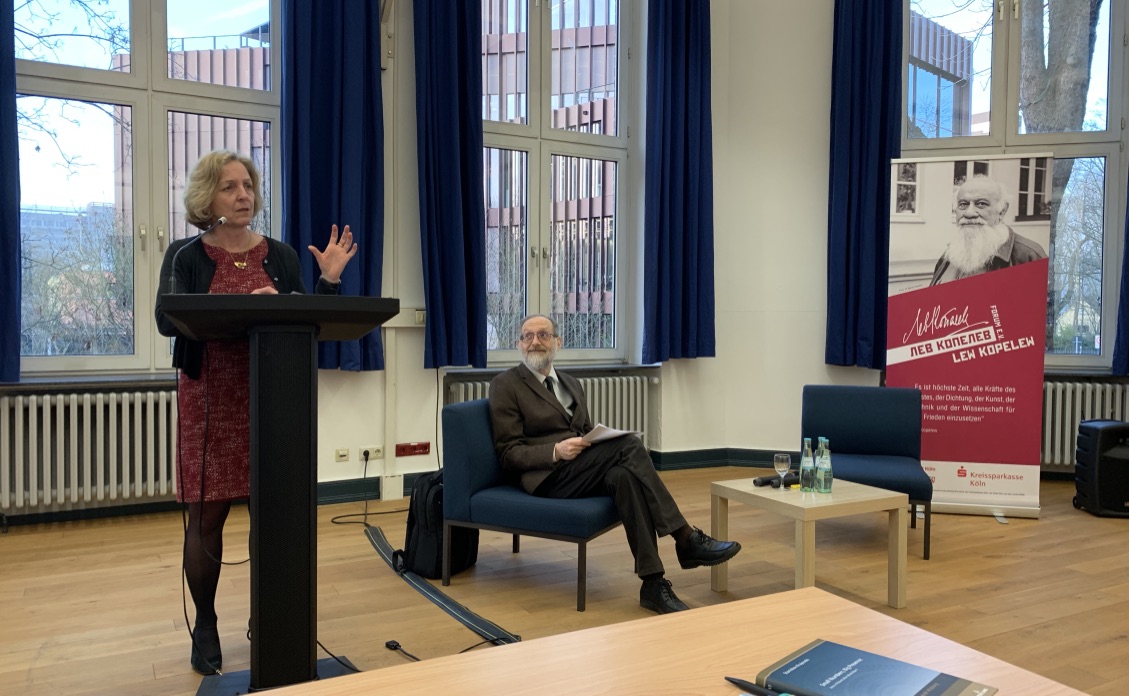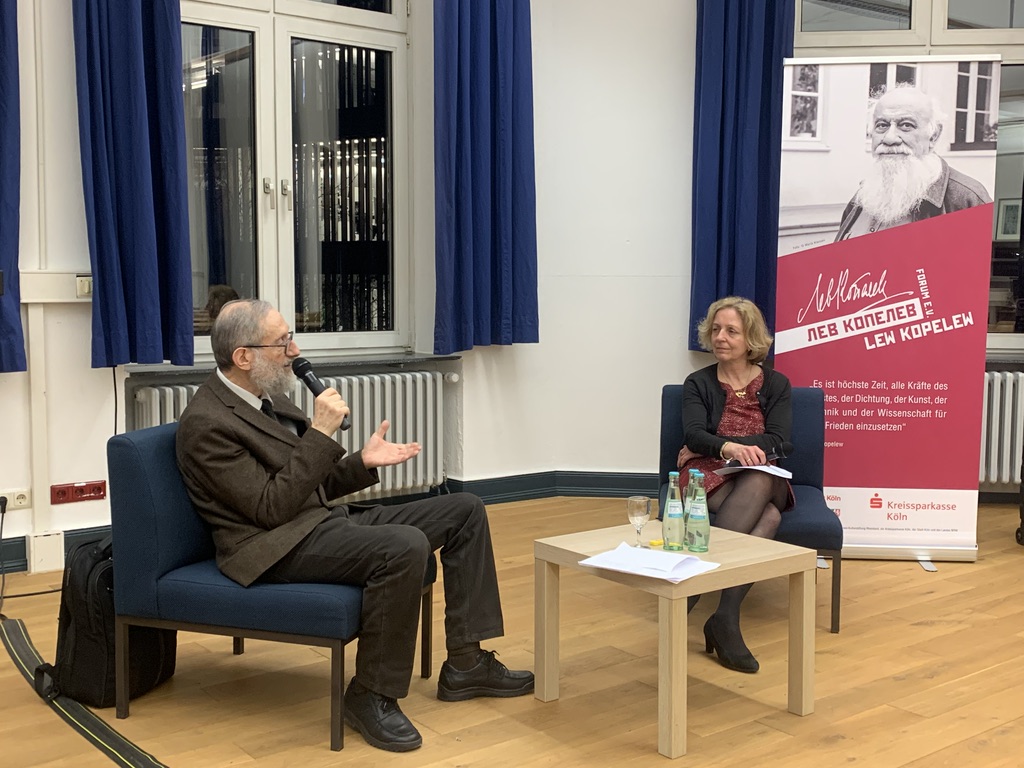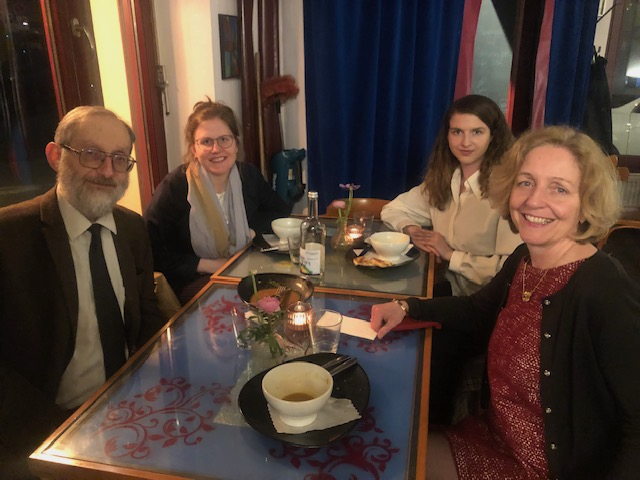
Welcome to the Institute of Eastern European and Comparative Law!
Institute of Eastern European and Comparative Law (formerly the Institute for Eastern European Law) was combined with the Academy for European Human Rights Protection in 2021. The Institute is specialised in research and teaching on topics related to law in Central and Eastern European countries. The director of the Institute is Professor Dr. Angelika Nußberger. This website overviews all projects, courses and cooperations concerning the Institute. Current research projects on Central and Eastern European law can be found on the research page.
German-language Master's course on German law starts in the summer semester in Cologne
Welcoming the Georgian students on Thursday, 10.04.
As part of the Master's program in German Law, which has been running since 2007 and is a cooperation between the law faculties of the University of Cologne and the Ivane Javakhishvili State University of Tbilisi (Georgia), the students of the current year were warmly welcomed last Thursday.
After successfully completing the winter semester in Tbilisi under the guidance of Cologne lecturers, six Georgian students are now continuing their Master's studies in Cologne. The program coordinators, Professor Angelika Nußberger and Professor Christian von Coelln, welcomed the group at the Academy for European Human Rights Protection.
The aim of the DAAD-funded course is to obtain an LL.M degree from the University of Cologne, to teach the basics of the German legal system and to develop skills in the comparative law of two legal and state systems.
Welcome to Cologne!
The Academy in deep mourning
Lorenz Wielenga, PhD student at the Academy for European Human Rights Protection since January 1, 2022, passed away on April 25, 2025 after a long, serious illness at the age of 28. With his kindness and warmth, his sensitivity, his social commitment and also with his wealth of ideas and academic brilliance, he was a role model for everyone.
We will name our library the Lorenz Wielenga Library after him and keep his memory close to our hearts.
Small Numbers, Big Presence: Jews in Poland after World War II | Book launch and discussion with Stanisław Krajewski
Small Numbers, Big Presence: Jews in Poland after World War II
Book launch and discussion with Stanisław Krajewski
On March 10, 2025, Stanisław Krajewski, Professor of Philosophy at the University of Warsaw, was a guest at the Academy for European Human Rights Protection at the University of Cologne and presented his book Small Numbers, Big Presence: Jews in Poland after World War II (Peter Lang), published in 2024. Against the background of the great importance of Polish Jewry for Jewish religious traditions on the one hand and its almost complete annihilation in the Shoah on the other, Stanisław Krajewski, influenced by his personal experiences, traces the development of Jewish life in Poland from 1945 to the present day. In his lecture, he gave an overview of the period since the Second World War, which he described as a new, albeit narrower, chapter in the thousand-year history of Jewish life in Poland, focusing in particular on questions of remembrance.
Stanisław Krajewski identifies the anti-Semitic campaign initiated by the Communist Party leadership in 1968 as the first decisive event. Until then, Polish Jews who had survived the Shoah and the war and decided not to emigrate had striven to assimilate and “flee from the memory” of their Jewish roots. Many had thus turned to the communism that prevailed in Poland at the time, usually trying to be “as non-Jewish as possible”. The anti-Jewish smear campaign of 1968, as a result of which at least 13,000 people were forced to leave the country, was a turning point and became a formative experience for the Jewish post-war generation, to which the author also belongs.
While Jewish institutions were barely visible or in crisis in Poland until 1989, a process that Krajewski describes as de-assimilation began after the fall of communism and continues to this day: a (re-)rapprochement with one's own Jewish roots, an ever-increasing importance of Jewishness for one's own identity, which takes its place alongside Polish identity without replacing or pushing it back. This development went and still goes hand in hand with a rapidly growing general interest in everything Jewish in Poland. One of the factors that promoted de-assimilation was also the interest of the Catholic Church in a dialog with people of Jewish faith. As a co-founder of the Polish Council of Christians and Jews in 1989, Stanisław Krajewski is still committed to Christian-Jewish encounters in Poland today. At the end of his lecture, he spoke about some of the challenges in the dialog, but also its concrete forms. In the subsequent discussion, moderated by Angelika Nußberger, Director of the Academy for European Human Rights Protection, these and other questions were discussed in greater depth.
The event was a cooperation between the Cologne-Bonn branch of the German Association for East European Studies (DGO) and the Lew Kopelew Forum. It was funded as part of the research project Memocracy - The Challenge of Populist Memory Politics for Europe: Towards Effective Responses to Militant Legislation on the Past.


